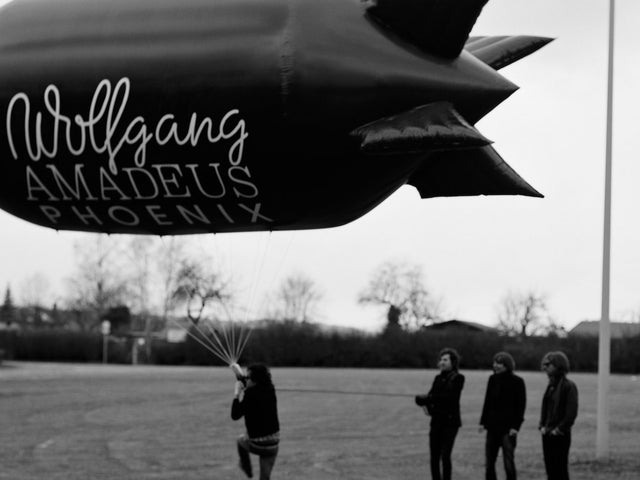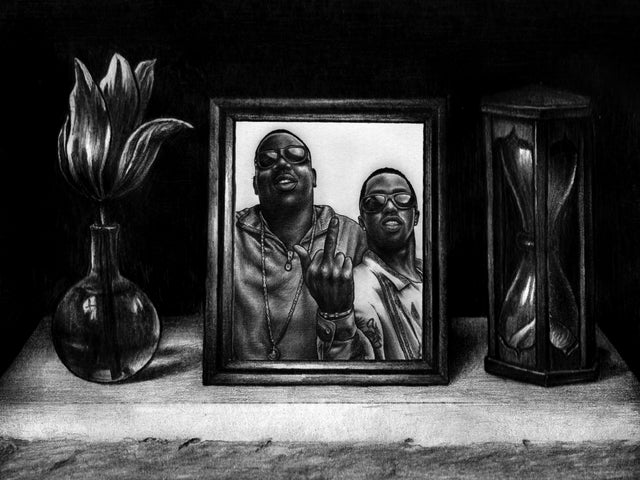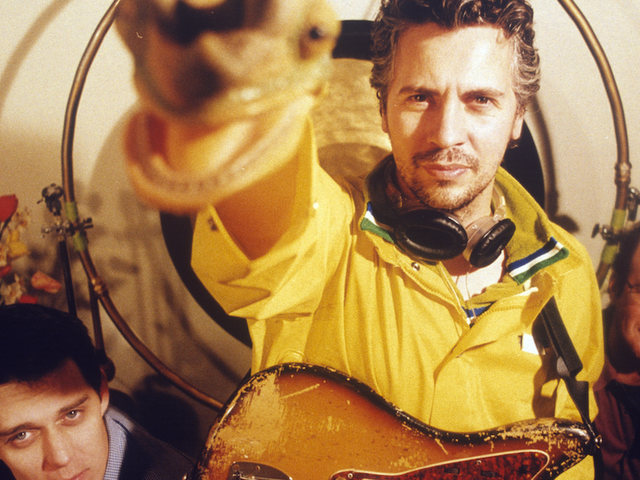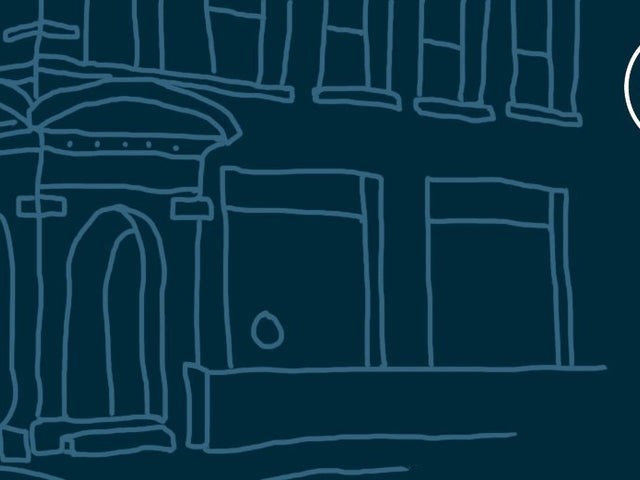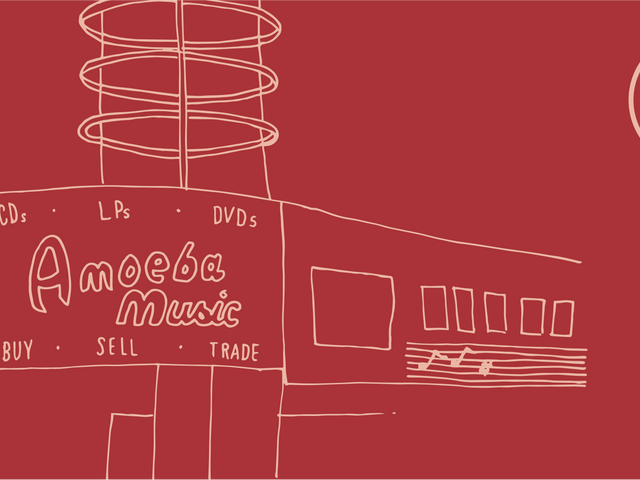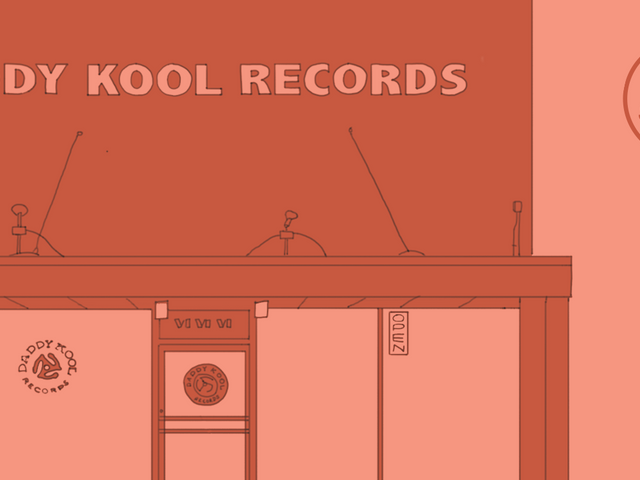The 50 Best Record Stores In America is an essay series where we attempt to find the best record store in every state. These aren’t necessarily the record stores with the best prices or the deepest selection; you can use Yelp for that. Each record store featured has a story that goes beyond what’s on its shelves; these stores have history, foster a sense of community and mean something to the people who frequent them.
On the desolate stretch of Highway 93 that stitches its way through the scrubby nothingness of eastern Idaho and into the impossibly beautiful Bitterroot Mountains in Montana, there is nothing to find on the radio. I discovered this in 1998, in the back seat of a Champagne Frost-colored Ford Escort station wagon, sandwiched between the two cat carriers and the dog, right after my Discman — equipped with an enviable 40-second Anti-Shock feature — died. I had been listening to something put out by No Limit Records. My guess is either Snoop’s Da Game Is To Be Sold, Not To Be Told, or maybe Master P’s MP da Last Don. After the Discman died, I remember leaning over the middle console, desperately scanning through FM, then AM dials, looking for something — anything — to listen to until my father finally commanded that I sit back and put my seatbelt on. We made the rest of the drive with nothing but the occasional mewling from the cats or an airy, nervous fart from the dog to fill the silence.
After years of enduring the petty woes of city living and a teenaged son (me) who was already showing great potential as a delinquent, the Carrolls decided to cut their losses in the Bay Area and head to, of all places, Hamilton, Montana. The Bay Area had about six million people; Hamilton had precisely 4,671. There were many terrible things about that first year in the boonies — getting the unfortunate and confusing nickname “Homo Dumbo” comes to mind — but the hardest part was being without access to music.
In the Bay Area I could listen to Wild 94.9 or KMEL 106.1, the big rap stations at the time. Or I could tune into UC Berkeley’s station, where I first learned of Operation Ivy, Green Day and Jawbreaker, or ride my bike down to Bedrock Music, a record store where I first learned about Bay Area legends Andre Nickatina and Hieroglyphics. Though I lived on the more suburban, less cool side of the Bay, there was something electric about being so close to so much amazing music. I felt connected to what was happening there. When I moved to Montana, music felt a million miles away: Rather than flipping on the radio or going to a record store to find music, I searched the then-modem powered internet for the hardest, toughest gangster rap I could find, then I'd ride my bike to the Music Box, an instrument rental store that happened to have a tiny CD rack, have them order it, then pick it up three weeks later.

Montana is a place people go to forget about the rest of the world. It’s easy to look at the raw, endless wonder of the state’s landscape and think, “Why would I want to be anywhere else?” Often, people move here when things don’t work out elsewhere. In the winter, going outside makes your eyes water and your teeth ache; in the summer, wildfires chew across the state at breakneck speeds. Its toughness makes people hard.
Consequently, it can be hard to connect with others in Montana, especially if your interests don’t include hunting, fishing or libertarianism. Because it’s so isolated, Montana often misses the cultural phenomena happening across state lines. When I arrive there at age 13, Montanans were still wearing JNCOs and Airwalks while the rest of the world had moved on to carpenter jeans and K-Swiss. By the time I found Ear Candy, located in Missoula, I was resigned to the fact that most of the people my age didn’t share my huge, unwieldy love for underground music. Half of my peers seemed perfectly content hearing Staind’s “Outside” four times a day on a radio station called “The Blaze,” while the other half passively endured a rotation of Sheryl Crow songs on “The Mountain.” Because of all of this, Montana desperately needed a center for kids like me.
Established in ’97, Ear Candy was a record store that not only sold wax but also created a community of like-minded music lovers. Its existence is what connected music-loving Montanans with the rest of the country’s music scenes. Its founders, John Fleming and John “Tex” Knesdek, were long-time veterans of the music scene, had worked in live music stalwart Jay’s Upstairs and felt that Missoula needed not just a place to buy records, but a place for music to live. From the very beginning, what set Ear Candy apart from any other business in town was the passion to build a place where music is treated not as a commodity, but rather with the awe and enthusiasm art deserves. Fleming sold his car to start this business. If it wasn’t for Ear Candy, Montana could’ve missed some of the important movements happening across the country. This is where I was first introduced to Stones Throw Records, where I bought Lightning Bolt’s Wonderful Rainbow, and where very patient employees helped me figure out who sang what songs using bits of lyrics I’d managed to jot down on scraps of paper before the song ended. It became the landmark musicians would remember when they played Missoula.
“Jay's Upstairs and Ear Candy were places that got a reputation through word-of-mouth (and zines) and so bands traveling through Montana knew to stop here,” Missoula Independent Arts and Culture editor Erika Fredrickson explained to me via email. “People like Thurston Moore will always stop by the record store when they're in town—it's like a tradition.”
Montana is a rural state; Missoula is where we go to get cultured. This is where we come to watch independent movies, see shows and buy good weed. When I first moved to Montana, I thought the only bands who played here were bands whose star was barely flickering — bands that were just two tours away from playing county fairs and fundraising drives. But it was at Ear Candy that I learned a local music scene actually existed. Thanks to Ear Candy’s local section, I found bands that were doing cool shit in this very town. One of these bands was International Playboys, who credit Ear Candy for fostering and promoting a healthy music scene. “I used to go through the local section all the time to see what new local bands were out there,” lead singer Colin Hickey told Vinyl Me, Please over email recently. For Hickey, what set Fleming apart from any other business owner was that he cared about local musicians, and acted accordingly. “The first place I would put up posters at was Ear Candy. I was so honored when John actually let me put up a poster inside the window and not just outside on the wall.”
Ear Candy is the best record store in Montana because it is the epicenter of Montana’s music community. Before I knew of it, music felt abstract, distant — a thing that was created in big places far away from me, in places like San Francisco and New York and L.A. But Ear Candy changed my mind, brought music close, and made it relevant again. Encouraged by the community I found at Ear Candy, I joined a terrible band and started throwing very poorly attended shows in my town. When I finally moved to Missoula in my late teens, I moved into an old apartment building that had issues — the building was drafty, the windows were so thin you could hear people laughing and yelling at each other from the Flipper’s Casino parking lot across the street. I chose it because you could see Ear Candy from the window.
Up next, we travel to the best record store in North Carolina.
Justin Carroll-Allan lives in Portland, OR with his wife, two dogs, and an arthritic cat. He has never been to Voodoo Doughnuts and thinks Phil Lynott is way cooler than Paul McCartney.
Related Articles
Join the Club!
Join Now, Starting at $44Exclusive 15% Off for Teachers, Students, Military members, Healthcare professionals & First Responders - Get Verified!
